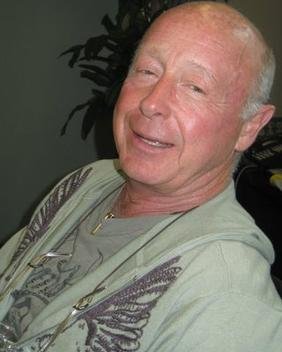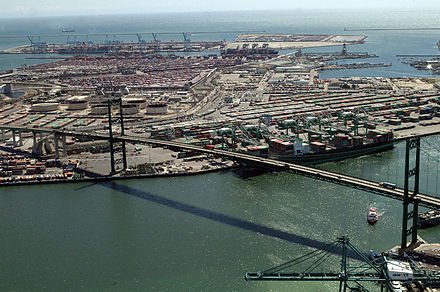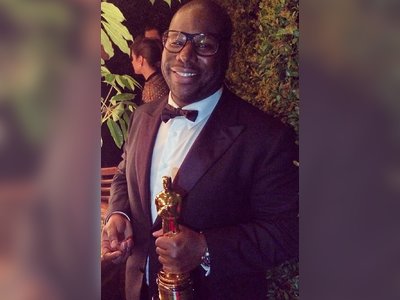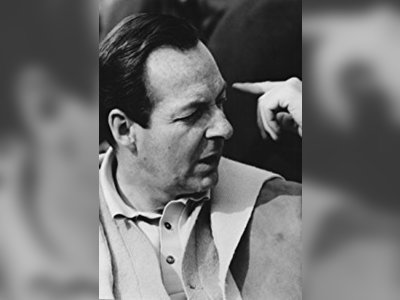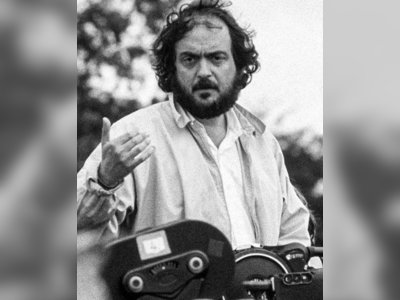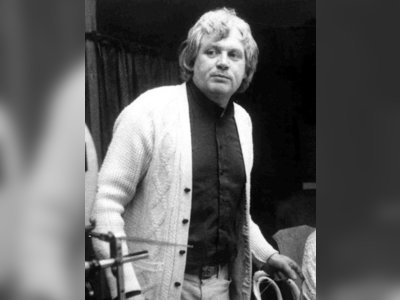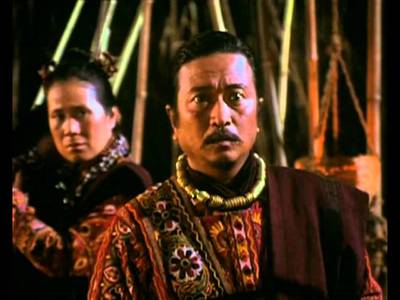British Heritage
Remember, Cherish, Learn.
beta
Tony Scott - Part of the 1980s British Wave
Contribution to British Heritage.
Tony Scott, a prominent figure in the film industry, made a significant contribution to British heritage through his remarkable career as a film director, producer, actor, screenwriter, and editor. Along with his elder brother Ridley Scott, Tony was part of a wave of talented British filmmakers that emerged in the 1980s, bringing a fresh and innovative approach to Hollywood. This group, which also included directors like Alan Parker, Hugh Hudson, and Adrian Lyne, made a lasting impact on the global film landscape, redefining the action and thriller genres with their visually captivating storytelling.
Born on 21 June 1944 in Tynemouth, Northumberland, England, Tony Scott was the youngest of three sons of Elizabeth and Colonel Francis Percy Scott, who served in the Royal Engineers. Growing up in a family with ties to the cinema industry, as his great uncle Dixon Scott was a pioneer in cinema chain operations, Tony's early exposure to film played a pivotal role in shaping his future career.
After completing his studies at Hartlepool College of Art and Sunderland Art School, Tony Scott continued his education at the prestigious Royal College of Art in London. Despite initially facing rejection, he eventually graduated from the institution, following in the footsteps of his elder brother Ridley, who was already establishing himself in the film industry.
Inspired by Ridley's success in television commercial production, Tony entered the world of advertising and quickly became a prolific director, creating visually striking and rock 'n' roll-style commercials. His distinctive visual style caught the attention of Hollywood producers, leading him to direct his first feature film, "The Hunger" (1983), starring David Bowie and Catherine Deneuve. While it didn't find immediate success, "The Hunger" later attained a cult following.
In 1985, Tony Scott's career took a momentous turn when producers Don Simpson and Jerry Bruckheimer offered him the opportunity to direct "Top Gun" (1986), a high-octane action film starring Tom Cruise. The film's tremendous success catapulted Tony into Hollywood's A-list of action directors, solidifying his reputation as a master of adrenaline-pumping entertainment.
Over the next decade, Tony Scott directed a string of blockbuster hits, including "Beverly Hills Cop II" (1987) with Eddie Murphy, "Days of Thunder" (1990) starring Tom Cruise, and "The Last Boy Scout" (1991) with Bruce Willis. He showcased his versatility by directing "True Romance" (1993), a crime thriller written by Quentin Tarantino, and "Crimson Tide" (1995), a gripping submarine drama starring Gene Hackman and Denzel Washington.
Throughout the 1990s and early 2000s, Tony Scott continued to deliver thrilling and successful films, such as "Enemy of the State" (1998) with Will Smith and "Man on Fire" (2004), once again teaming up with Denzel Washington. Additionally, he ventured into television production, co-producing the series "Numb3rs."
Tony's collaborations with his brother Ridley extended beyond the silver screen, as they jointly acquired Shepperton Studios in Britain and embarked on various projects together, further solidifying their legacy in the film industry.
Tony Scott's impact on cinema extended far beyond box office numbers, with many film critics acknowledging his influence and style. His films often featured characters with dark and complex backgrounds, adding depth and authenticity to the stories.
Despite his tremendous success, Tony Scott faced personal challenges, including three marriages and battles with depression. Tragically, on 19 August 2012, he died by suicide, leaving behind a body of work that continues to inspire and entertain audiences worldwide.
In memory of Tony Scott's immense contribution to the film industry, the Scott family established a scholarship fund at the American Film Institute to encourage and support future generations of filmmakers. His legacy endures through his films, which showcase his ability to entertain and mesmerize audiences with their dynamic energy and compelling storytelling.
Early Life and Career Beginnings:
Born on 21 June 1944 in Tynemouth, Northumberland, England, Tony Scott was the youngest of three sons of Elizabeth and Colonel Francis Percy Scott, who served in the Royal Engineers. Growing up in a family with ties to the cinema industry, as his great uncle Dixon Scott was a pioneer in cinema chain operations, Tony's early exposure to film played a pivotal role in shaping his future career.
After completing his studies at Hartlepool College of Art and Sunderland Art School, Tony Scott continued his education at the prestigious Royal College of Art in London. Despite initially facing rejection, he eventually graduated from the institution, following in the footsteps of his elder brother Ridley, who was already establishing himself in the film industry.
Commercials and Early Films:
Inspired by Ridley's success in television commercial production, Tony entered the world of advertising and quickly became a prolific director, creating visually striking and rock 'n' roll-style commercials. His distinctive visual style caught the attention of Hollywood producers, leading him to direct his first feature film, "The Hunger" (1983), starring David Bowie and Catherine Deneuve. While it didn't find immediate success, "The Hunger" later attained a cult following.
Breakthrough and Hollywood Success:
In 1985, Tony Scott's career took a momentous turn when producers Don Simpson and Jerry Bruckheimer offered him the opportunity to direct "Top Gun" (1986), a high-octane action film starring Tom Cruise. The film's tremendous success catapulted Tony into Hollywood's A-list of action directors, solidifying his reputation as a master of adrenaline-pumping entertainment.
Over the next decade, Tony Scott directed a string of blockbuster hits, including "Beverly Hills Cop II" (1987) with Eddie Murphy, "Days of Thunder" (1990) starring Tom Cruise, and "The Last Boy Scout" (1991) with Bruce Willis. He showcased his versatility by directing "True Romance" (1993), a crime thriller written by Quentin Tarantino, and "Crimson Tide" (1995), a gripping submarine drama starring Gene Hackman and Denzel Washington.
Continued Success and Later Career:
Throughout the 1990s and early 2000s, Tony Scott continued to deliver thrilling and successful films, such as "Enemy of the State" (1998) with Will Smith and "Man on Fire" (2004), once again teaming up with Denzel Washington. Additionally, he ventured into television production, co-producing the series "Numb3rs."
Tony's collaborations with his brother Ridley extended beyond the silver screen, as they jointly acquired Shepperton Studios in Britain and embarked on various projects together, further solidifying their legacy in the film industry.
Legacy and Personal Life:
Tony Scott's impact on cinema extended far beyond box office numbers, with many film critics acknowledging his influence and style. His films often featured characters with dark and complex backgrounds, adding depth and authenticity to the stories.
Despite his tremendous success, Tony Scott faced personal challenges, including three marriages and battles with depression. Tragically, on 19 August 2012, he died by suicide, leaving behind a body of work that continues to inspire and entertain audiences worldwide.
In memory of Tony Scott's immense contribution to the film industry, the Scott family established a scholarship fund at the American Film Institute to encourage and support future generations of filmmakers. His legacy endures through his films, which showcase his ability to entertain and mesmerize audiences with their dynamic energy and compelling storytelling.
- Tony Scotten.wikipedia.org
